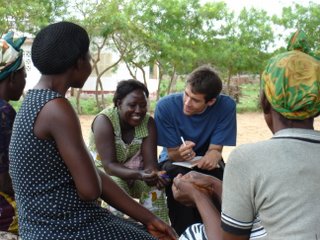
The most recent issue of BYU Studies has a number of interesting articles commemorating the 30 year anniversary of the revelation allowing worthy men of all races to be ordained to the priesthood within the LDS Church.
This topic has special meaning for me as it was one of the first major issues that I explored in depth as I began to examine my own faith on the road to my own conversion to the Mormon faith. At that time I relied heavily on the writings of Jessie Embry but these BYU Studies articles provide a very personal look into the mind of Spencer W. Kimball. The main article is a long excerpt from a book published by his son, Edward L. Kimball. A couple things that struck me:
The role of academics and historians in influencing the thinking within the First Presidency. This article in BYU Studies points to a personal letter exchange between an LDS sociologist and a Mission President in 1947 asking about expansion to Cuba as a catalyst that caught the attention of the First Presidency in terms of re-examining the policy. Although the First Presidency put out a statement defending the policy at the time, behind the scenes a special committee was formed of the Twelve to study the issue and policies began to change, such as not requiring all converts in South Africa to trace their lineage. The author summarized, "The possibility for changing the policy increased subtly as scholarly efforts to trace the restriction to its source showed no certain beginnings and shaky reasoning in support of the practice," he then goes on to list the various scholarly articles published and evidences that members of the Twelve were actively reading and following the debate. It was also a letter from a Harvard administrator and reports from the Historical Department that seemed to influence the timing of the announcement.
The differences of opinion within the Twelve on the issue and the role of personalities. Strong opinions are to be expected when putting men of such caliber together in the same room. It only makes the unanimity that accompanies decisions by the Twelve that much more incredible and, in my mind, evidence of the influence of revelation and the spirit in humbling certain strongly opinionated individuals. (a quote by Elder Romney illustrates, "I had gone eighty years defending the Church's position. I am a Romney, you see, and a stubborn man...I would not have gone along without a witness in my own soul.")
Hugh B. Brown seems to have been the most in favor of dropping the ban as an administrative decision, not seeing need for a revelation if the policy did not originate in revelation. President McKay saw it not as revelation but as an inspired policy requiring divine intervention to change. He apparently desired and sought such a revelation but did not receive it. After President McKay's death momentum was apparently building within the Twelve, led by Hugh B. Brown, for a policy change but President Lee was strongly opposed to it and so it remained. Then of course it is interesting to look at the life of Spencer Kimball and all the ways he was prepared by his assignments to be the leader that finally received the answer. I was also struck by the personal correspondence that Kimball had with Elder McKonkie who concluded that there was no scriptural barrier to a change in policy and how strongly this endorsement apparently influenced President Kimball.
The nature and process of revelation. Perhaps the most interesting element of the article is the insights that can be garnered as to the nature and process of revelation. Even though President Kimball straightforwardly believed "should the day come it will be a matter of revelation" and that those who wanted to force the issue "cheapen the issue and certainly bring into contempt the sacred principle of revelation and divine authority," he also was an almost obsessed student in conducting informal interviews, keeping clippings, and then spending hundreds of hours alone in the temple in prayer and fasting focusing on the issue. Then his description of his answer, "there grew slowly a deep, abiding impression to go forward with the change." The moment of consensus among the Twelve was a bit more dramatic but even then it only came after years of debate and deliberation.
That process and recognition of an answer is within the reach of every member, and very well should be the experience of every member at some level. Hopefully the ramifications of my decisions are not of such a magnitude that it will take 25 years to get an answer or for everyone around me to be ready for the change...maybe that's why I'm not married, the rest of the world is not ready to accept a married David Stoker... ok, maybe there are other factors at play there.

